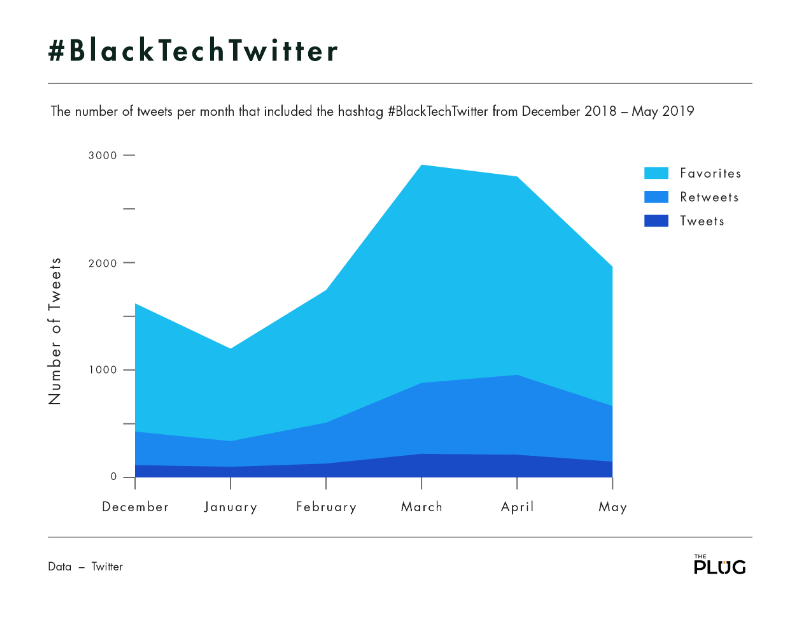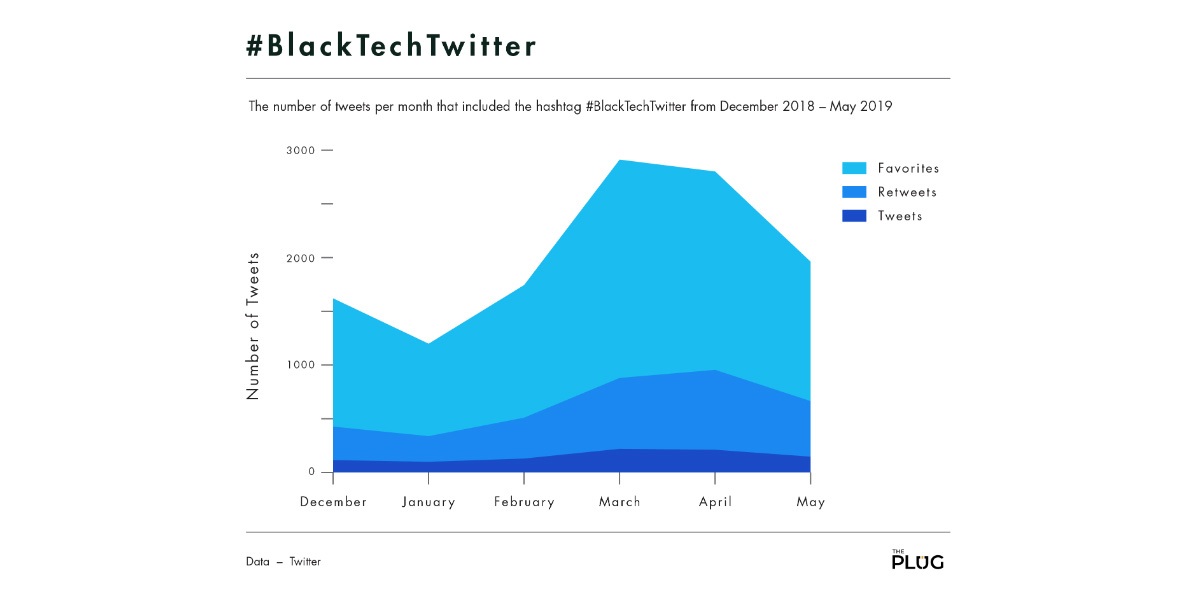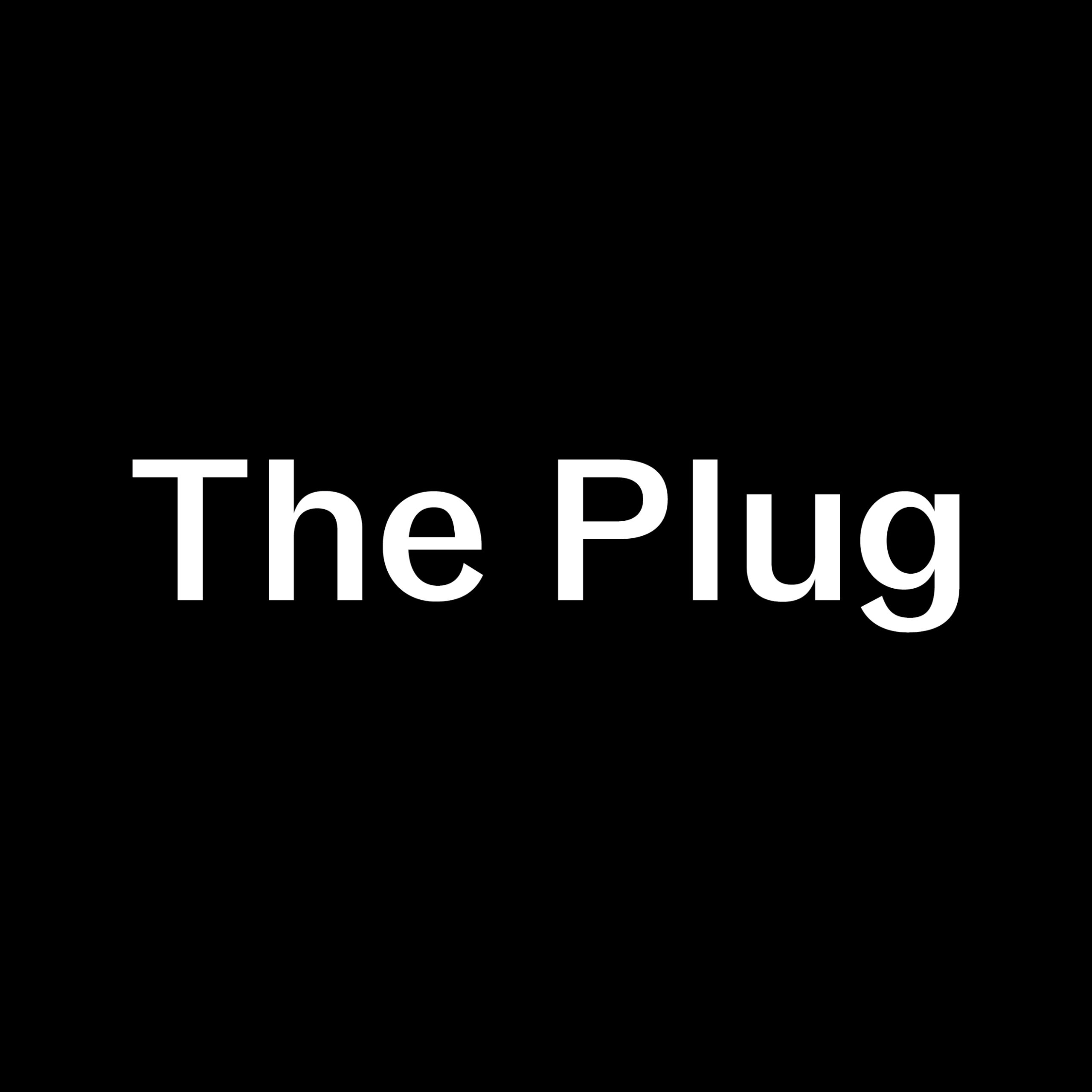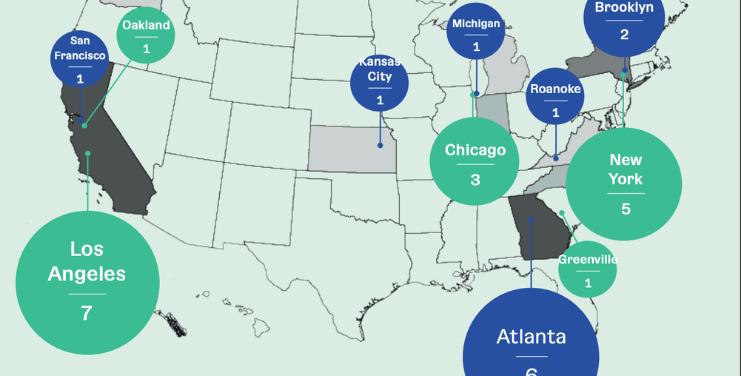Pariss Athena was earning just under $50,000 a year working as a wax specialist in Boston after dreams of making it as a young actress in Los Angeles went south.
Today, she’s making over $80,000 as a front-end developer at a Boston-based digital agency and leading the quickly growing #BlackTechTwitter online community.
Athena jump started her tech career nearly two years ago after attending the Resilient Coders hackathon where she landed her a spot in their 6-month boot camp and apprenticeship program. Shortly after, she’d worked as a developer for a startup skin care company that eventually fizzled out, and while on the job hunt to find her next opportunity, turned to Twitter for resources, research, and as she explained, to find other Black people working in technology. Boston’s tech community, she explained, was isolating.
Her search for community proved to be fruitful.
Athena began championing the hashtag #BlackTechTwitter in late December 2018, to create a sense of belonging in an industry continuing to stagger in its lack of representation of women and people of color.
After a Tweet asking Black people in technology to post photos of themselves and a description of their tech job went viral, the hashtag picked up steam as other users began sharing new job opportunities, their experiences, where to find conferences, and what new job opportunities were open.
The whole premise [of #BlackTechTwitter] is to bring exposure to Black people in technology, said Athena. When companies say there’s a pipeline problem, it’s shocking to me because I gathered this entire community that people continue to add themselves.
In our Twitter API search query, we noticed the #BlackTechTwitter hashtag was first used in 2015. But it didn’t begin picking up steam until late December 2018 after Athena’s Tweet went viral. As of today, over 9,300 users and counting across the world have engaged in some capacity by asking for job recommendations, assistance with finding resources for programming languages or connecting for conference meetups and special events.
The hashtag, as much as it is a tool for safe connection in a crowded online space, has also served as an identity marker for Black technologists looking for shared connections and relevancy within their shared experiences of working in predominately white spaces.
When I lost my first tech job, I got onto Twitter to talk about my journey and my job search. While there are lots of Blacks in tech on Twitter, I hadn’t seen Black people in mass at work or at the conferences I was attending, said Athena.
The study of Twitter communities had revealed how these online subsets of the platform provides social connection points for many groups creating identities and discourse about their lived and shared experiences online. BlackTech Twitter emerges adjacent to Black Twitter among other visible online points like LatinXTwitter, Asian Twitter, etc. providing notable influence among individuals around the world.
As a keeper of the #BlackTechTwitter, Athena has personally taken on the responsibility to be as active as possible and to leverage the online community to provide a safe space for other Black technologists particularly those living in highly restrictive or limited technology communitiesto network, learn about education opportunities, and to share their thoughts and experiences on navigating predominately white spaces.
#BlackTechTwitter could prove to be a recruiting tool for companies looking for talent and for those who have had a difficult time changing their hiring processes to identify Black tech talent through traditional practices like recruiting from top schools or largely depending on the networks of their employees which are often homogenous.
Since 2018, the identifier was used nearly 10,000 times among Black technologists, hiring managers, and those looking for resources or sharing their experiences within the tech industry.

Similar initiatives like app solution Career Karma, which got its start through the Breaking into Startups podcast, are primarily an onboarding process into technology for underrepresented groups, instilling confidence in candidates from non-traditional backgrounds. These communities have the potential to be recruiting pools for companies to tap to create greater spectrums of diversity within their companies.
“We want to make sure that people understand that there are people that look like them working in tech, […] but also here’s how you tell your story to present yourself from a position of power, Ruben Harris, co-founder of the Breaking Into Startups podcast series which has received over 3 million downloads, told CBS San Francisco in an interview.
These communities begin altruistically, being an information-first or social capital-first baseline for those seeking connection points to education in addition to introductions to job opportunities with language specifically targeted to women and people of color.
Language like my job is hiring for, please share this with POCs in your community are frequently shared updates across feeds.
Athena says that she’s seen users in her community get interviews with notable tech companies as well as speaking opportunities at workshops, discounted or free tickets to technology conferences, and connections with people which have lead to higher paying roles.
Athena also sites that there’s deep collaboration across the community with projects emerging from spin-off groups like Latinx tech Twitter and Native American Tech Twitter.
Now, she says, employers and recruiters know that Black people in technology are out there and they exist.
We’re being seen and noticed and offered opportunities, said Athena.








